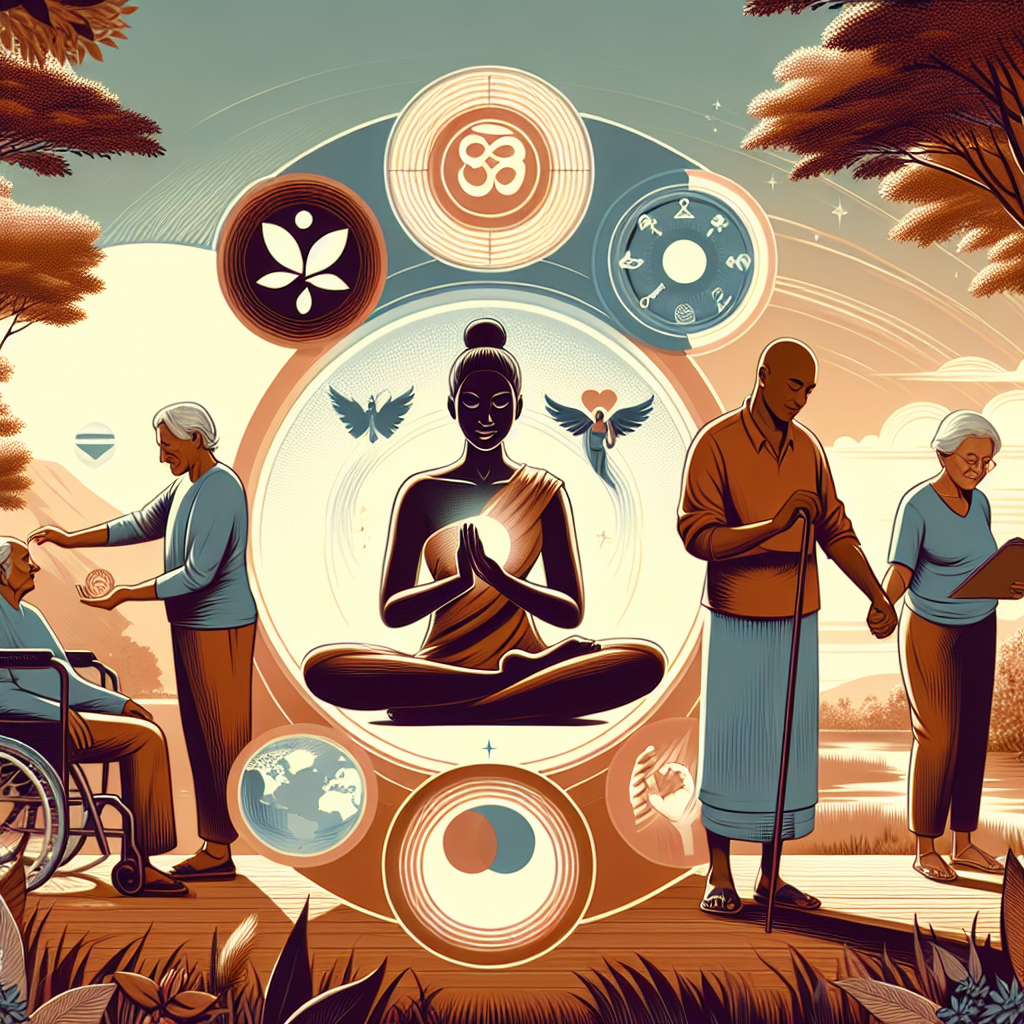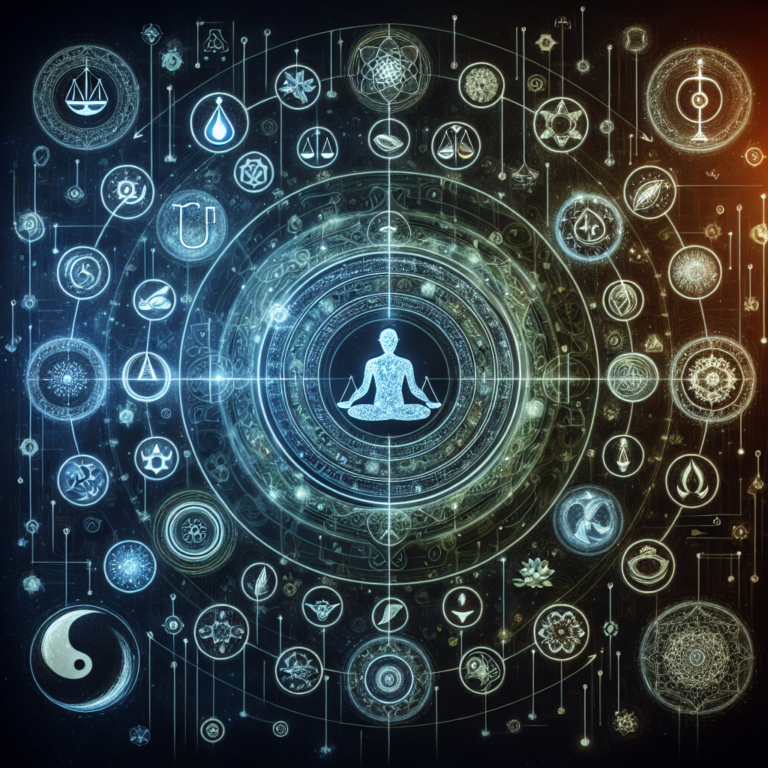Dharma is a multifaceted concept that can deeply enrich individual lives and contribute to the collective good of society. As it transcends its roots in ancient Indian philosophy, dharma is increasingly relevant in the modern world, calling individuals toward authenticity and moral coherence. This article discusses the essence of dharma, its significance, and how individuals can embody this principle in their lives.
What is Dharma?
The term “dharma” originates from the Sanskrit root “dhri,” which means “to uphold” or “to support.” Dharma encompasses law, duty, ethics, and moral values, but its meaning is not limited to these definitions. It can represent the cosmic law that governs the universe as well as the individual responsibilities each person holds. In essence, dharma is both a personal and universal ethical code that guides behavior and informs an individual’s role within a society.
The Historical Context of Dharma
Dharma is deeply intertwined with Indian philosophy and religion, particularly within Hinduism, Buddhism, Jainism, and Sikhism. Each of these traditions views dharma through unique lenses but shares a common belief in the importance of living according to moral principles. In Hindu texts like the Mahabharata and the Bhagavad Gita, dharma is presented as a moral compass that helps individuals navigate the complexities of life.
Dharma in Daily Life
Understanding and implementing dharma in daily life can profoundly affect one’s journey toward authenticity. Here are some ways individuals can embody dharma:
1. Understanding Your Role
Every person exists in multiple roles – as a child, parent, sibling, friend, or professional. Recognizing these roles and understanding their associated responsibilities is critical in living one’s dharma. Each role carries specific duties that contribute to personal and collective harmony.
2. Aligning Values and Actions
To live authentically, individuals must align their actions with their core values. This alignment fosters integrity, ensuring that what one believes is consistent with what one does. Establish a set of values that resonate with who you are, and strive to act in accordance with them.
3. Practicing Compassion and Kindness
Compassion forms an integral part of dharma. By approaching others with kindness and understanding, individuals contribute positively to their communities. Simple acts of kindness can resonate profoundly and inspire a collective atmosphere of goodwill.
4. Embracing Change and Adaptability
Dharma is not a static concept; it evolves with context and circumstances. Embracing change and adaptability allows individuals to navigate life’s uncertainties while maintaining their core principles. A flexible approach to living dharma can lead to growth and self-discovery.
5. Engaging in Self-Reflection
Self-reflection is essential in understanding oneself and one’s dharma. Taking time to meditate, journal, or simply contemplate on personal thoughts and actions can provide clarity in decision-making and goal-setting. It opens the door to recognizing areas of alignment and discord in one’s life.
The Relationship Between Dharma and Authenticity
Living authentically is often perceived as an essential aspect of happiness and fulfillment. Understanding one’s dharma can significantly contribute to authenticity, as it guides individuals toward their true selves. Here’s how dharma fosters authenticity:
1. Self-Discovery
Embracing dharma initiates a journey of self-discovery. As individuals seek to uncover and understand their roles and responsibilities, they often unearth their true passions and desires, paving the way for a life lived authentically.
2. Moral Clarity
Dharma promotes moral clarity by providing a framework for ethical decision-making. When faced with challenges or dilemmas, having an understanding of one’s dharma can guide individuals toward actions that resonate with their core beliefs and moral compass.
3. Strengthening Relationships
When individuals align their actions with their dharma, their relationships tend to flourish. Authentic relationships are built on trust, integrity, and genuine connection. Living in accordance with one’s dharma fosters respect and understanding in interpersonal dynamics.
The Challenges of Living One’s Dharma
Despite the clarity and direction that dharma can provide, individuals often face challenges in its practice. Here are some common obstacles:
1. Societal Pressures
Societal expectations may conflict with personal dharma, leading to confusion and dissonance. Navigating these pressures requires courage and introspection, as individuals must define their paths amidst external influences.
2. Fear of Judgment
Many people fear judgment from others when pursuing their authentic selves. This fear can deter individuals from living their dharma, but by embracing vulnerability and seeking personal truth, one can gradually overcome these fears.
3. Lack of Clarity
For some, identifying one’s dharma may feel elusive. Engaging in self-reflection, seeking mentorship, or participating in philosophical study can assist in gaining clarity about personal values and roles.
Tools and Practices for Discovering Your Dharma
To effectively engage with the concept of dharma, various tools and practices can be utilized. Here are some methods to explore and discover your personal dharma:
1. Meditation
Regular meditation fosters deeper self-awareness and clarity regarding personal values and purpose. It allows individuals to quiet the noise of daily life and tune into their inner selves.
2. Journaling
Journaling prompts reflection and exploration of thoughts and feelings. Writing about experiences, values, and life events can illuminate patterns and insights that offer guidance toward living authentically.
3. Seeking Guidance
Mentors, coaches, or spiritual leaders can provide valuable insights and perspectives in the journey of understanding dharma. Engaging in discussions or attending workshops can stimulate growth and clarity.
4. Reading and Learning
Diving into texts and philosophies related to dharma can expand understanding and offer frameworks for ethical living. Explore classical texts like the Bhagavad Gita or contemporary writings on spirituality and purpose.
Dharma in Different Traditions
While the concept of dharma has roots in Indian spirituality, similar principles exist across various cultures. Here’s a brief overview:
1. Buddhism
In Buddhism, dharma (or dhamma) signifies the teachings of the Buddha. It encompasses the path to enlightenment, emphasizing moral conduct, mindfulness, and wisdom as essential components of living a truthful life.
2. Jainism
Jainism places a strong emphasis on ahimsa (non-violence) as one of the fundamental tenets of dharma. Followers strive to live ethically and compassionately, seeking to minimize harm to all living beings.
3. Sikhism
Sikhism teaches the concept of “dharam” as righteous living, encompassing honesty, selfless service, and devotion to God. Sikhs believe in living a life of integrity and compassion as a reflection of their dharam.
Conclusion
Dharma serves as a guiding light toward authenticity, offering principles that enrich individual lives while fostering harmony within society. By understanding and embracing dharma, individuals can navigate life’s complexities with clarity, integrity, and purpose. Living authentically is not only a personal journey but also a collective responsibility that contributes to the greater good. May this understanding of dharma inspire you to explore your truth and create a life that resonates with your deepest values.
FAQs
1. What is the difference between dharma and karma?
Dharma refers to the moral law or duty that governs individual actions, while karma pertains to the actions themselves and the consequences that arise from them. Dharma sets the guidelines for righteous living, and karma is the result of following or deviating from those guidelines.
2. Can dharma change over time?
Yes, dharma can change depending on context, societal norms, and individual understanding. As people grow and evolve, their understanding of their roles and responsibilities may also shift, guiding them to adapt their dharma accordingly.
3. How can I discover my personal dharma?
Discovering personal dharma involves self-reflection, understanding your roles and responsibilities, aligning actions with values, and seeking guidance through meditation, journaling, or mentorship.
4. Is dharma only relevant in religious contexts?
While dharma has religious origins, its principles are widely applicable in secular contexts as well. The concepts of ethics, integrity, and responsibility resonate universally, guiding individuals towards fulfilling and authentic lives.
5. What role does dharma play in relationships?
Dharma encourages individuals to understand their responsibilities toward others, fostering respectful, honest, and nurturing relationships. By living in accordance with dharma, individuals contribute positively to their interpersonal dynamics.
, It seems like you might be looking to provide a specific prompt or topic for discussion. Could you please clarify or specify what you would like to explore or request?, #Understanding #Dharma #Guide #Living #Authentically, #Understanding #Dharma #Guide #Living #Authentically, 1734054797, understanding-dharma-a-guide-to-living-authentically





